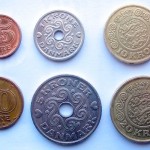Gold futures declined the most in six weeks as investors assessed the prospects that Fed will cut stimulus as the economy gains, curbing demand for the precious metal as a store of value. Meanwhile, silver also edged lower, while copper futures slid to the weakest level since July 2010, after the collapse of a Chinese real-estate developer fueled concern that defaults by indebted companies will erode demand in the biggest consumer of the metal.
On the Comex division of the New York Mercantile Exchange, copper futures for settlement in May fell by 1.92% to trade at 2.896 a pound by 15:19 GMT. Prices shifted in a daily range between $2.963 and $2.877 a pound, the weakest level since July 2010.
Zhejiang Xingrun Real Estate Co. reportedly defaulted on nearly $600 million in debt yesterday, only two weeks after Chinese first onshore bond default. The Chinese yuan plunged to 11-month low, while money market rates increased.
According to data by the Copper Development Association, construction accounts for about 40 percent of demand for the metal.
Gold futures fell the most in six weeks as investors wagered the Federal Reserve will trim stimulus later today.
On the Comex division of the New York Mercantile Exchange, gold futures for settlement in April traded at $1 339.00 per troy ounce by 15:20 GMT, down 1.5% on the day, the most in six weeks. Prices shifted in a daily range between $1 360.10 an ounce and $1 337.70 an ounce, the weakest level since March 10.
Market players awaited the outcome of the Federal Reserve’s two-day policy meeting, which is broadly expected to cut monthly bond buying by another $10 billion as it did at its two prior meetings, before the central bank announces its decision later today.
Elsewhere on the Comex, silver futures for May delivery fell 0.9 percent to trade at $20.673 an ounce by 15:21 GMT. Platinum futures for April delivery dropped 0.5 percent to $1,454.40 an ounce. The price fell for the fourth straight session, the longest losing stretch in six weeks. Palladium futures for June delivery declined 0.65 percent to $766.40 an ounce. On March 14, the price reached a one-year high of $787.60 an ounce as tension between the largest palladium producer Russia and Ukraine escalated.





